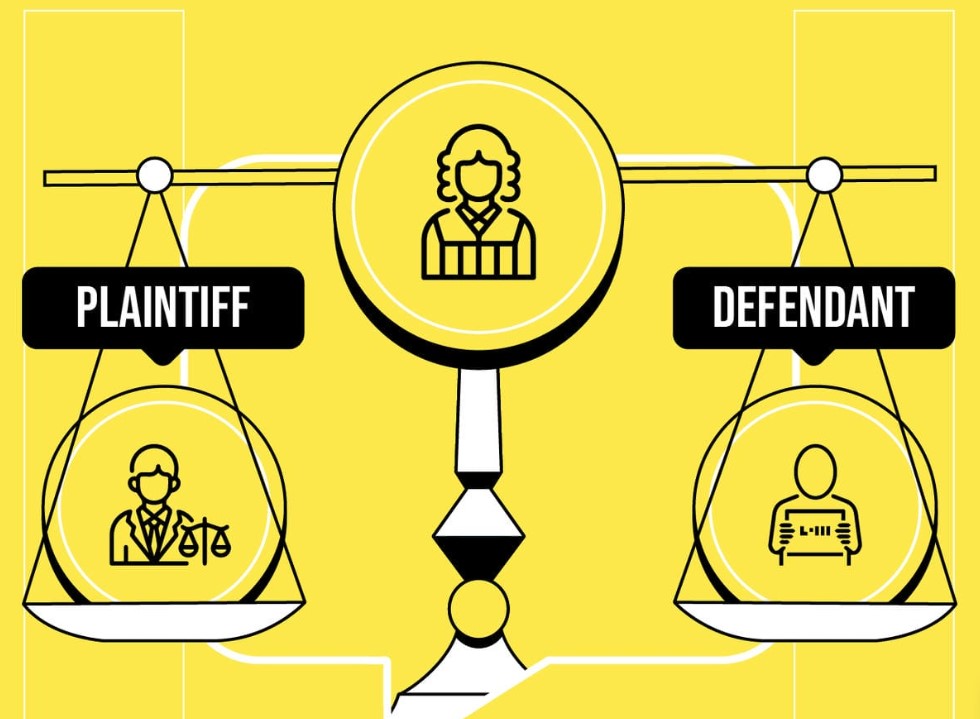I Hate to Advocate Drugs Alcohol Violence
I strongly oppose drugs, alcohol, and violence due to their negative impacts. The use of drugs, alcohol, and violence has become a deeply concerning issue in our society today.
These destructive behaviors not only pose severe health risks but also contribute to a range of social issues, from crime rates to broken families. In this day and age, it is crucial that we understand the harmful consequences associated with drugs, alcohol, and violence in order to address them effectively.
This article will explore the reasons why advocating against these behaviors is essential, highlighting the negative effects they have on individuals, families, and communities. By shedding light on the dangers associated with drugs, alcohol, and violence, we can strive towards creating a safer and healthier environment for all.
The Dangers Of Drug Abuse
Drug abuse is a serious issue that plagues societies around the world. It has devastating consequences on individuals, families, and communities. From its impact on health to the social consequences it brings, drug abuse poses significant threats. Understanding these dangers is crucial in raising awareness and prompting action to address this pressing problem.
The Impact Of Drug Abuse On Health
Drug abuse has dire consequences on an individual’s physical and mental health. When drugs are consumed, they disrupt the normal functioning of the body and brain. This disruption can lead to a wide range of health issues, varying from mild to severe.
Some common health consequences of drug abuse include:
- Loss of appetite and significant weight loss
- Insomnia and other sleep disorders
- Impaired cognitive function and memory loss
- Damage to vital organs such as the liver, heart, and kidneys
- Weakening of the immune system, making individuals more susceptible to infections and diseases
Moreover, drug abuse often leads to addiction, which further exacerbates health problems. Addicted individuals may experience withdrawal symptoms when trying to quit, which can range from discomfort to life-threatening complications. The physical and mental toll of drug abuse is immense, making it imperative to address this issue promptly.
The Social Consequences Of Drug Abuse
The dangers of drug abuse extend beyond individual health; they also have far-reaching social consequences. Drug abuse affects relationships, families, and communities in profound ways.
Some of the social consequences of drug abuse include:
- Breakdown of family units and strained relationships
- Financial strain due to excessive spending on drugs and related consequences such as legal issues and medical bills
- Increased crime rates as addicts may resort to theft or illegal activities to sustain their addiction
- Loss of productivity and missed opportunities in education, work, and personal growth
- Stigmatization and marginalization of individuals struggling with addiction
Drug abuse has a ripple effect that spreads through society, negatively impacting both individuals and the communities they belong to. Breaking this cycle requires collective efforts to provide support and resources for those struggling with addiction.
Finding Help For Drug Addiction
If you or someone you know is battling drug addiction, it is essential to seek help as soon as possible. Overcoming drug addiction is a challenging journey, but there are resources available to assist in the recovery process.
Some options for finding help include:
- Reaching out to local support groups or addiction helplines
- Consulting with healthcare professionals specializing in addiction treatment
- Exploring rehabilitation centers or outpatient programs that provide comprehensive care
Remember, seeking help is a sign of strength, and recovery is possible with the right support system. Don’t hesitate to reach out and take the first step towards a healthier, drug-free life.
Understanding The Effects Of Alcohol
Understand the impact of alcohol and its relation to drugs, violence, and personal dislike. Gain insights into the consequences of alcohol consumption without advocating for its use.
Understanding the Effects of Alcohol
The consumption of alcohol has become a widespread social norm in today’s society. However, it is crucial to recognize and understand the profound effects alcohol can have on both individuals and communities. From physical and mental repercussions to social and behavioral consequences, alcohol abuse can lead to severe and long-lasting damage. In this section, we will delve deeper into these effects, shedding light on the reality of alcohol addiction and the need for treatment.
The Physical And Mental Effects Of Alcohol
The physical and mental effects of alcohol can be far-reaching. Long-term alcohol abuse can have detrimental consequences on the body, affecting various organs, including the liver, heart, pancreas, and brain. Some of the physical effects of alcohol include liver disease, cardiovascular problems, and increased susceptibility to infections. Alcohol also impairs cognitive function, causing memory loss, poor judgment, and decreased coordination.
The impact of alcohol on mental health should not be underestimated. Alcohol is a depressant and can exacerbate existing mental health conditions such as depression and anxiety. It can also lead to the development of alcohol-induced psychiatric disorders, including alcohol-induced psychotic disorder and alcohol-induced mood disorder. These mental health issues can negatively affect an individual’s relationships, work performance, and overall quality of life.
The Social And Behavioral Consequences Of Alcohol Abuse
Beyond the physical and mental effects, alcohol abuse can have significant social and behavioral consequences. Alcohol impairs judgment and inhibitions, leading to reckless behavior and poor decision-making. This can result in violence, aggression, and accidents. Drunk driving, for instance, poses a serious threat to public safety and has claimed countless lives.
Alcohol abuse can also strain relationships, leading to marital problems, domestic violence, and difficulties in maintaining friendships. Additionally, the financial burden of alcohol addiction can be overwhelming, putting a strain on personal finances and contributing to a cycle of poverty.
Seeking Treatment For Alcohol Addiction
Recognizing the detrimental effects of alcohol abuse is the first step towards seeking treatment. However, overcoming alcohol addiction is a complex and challenging journey. Professional help, such as therapy, counseling, and rehabilitation programs, can provide individuals with the necessary tools to break free from their dependence on alcohol.
When seeking treatment, it is essential to find a program that addresses both the physical and psychological aspects of addiction. Rehabilitation centers offer various therapies, support groups, and medical interventions that can assist individuals in their recovery. Moreover, receiving support from friends, family, and the community is crucial for long-term success.
In conclusion, understanding the effects of alcohol is vital in recognizing the need for change and seeking treatment for alcohol addiction. By shedding light on the physical, mental, social, and behavioral consequences of alcohol abuse, we hope to raise awareness and encourage those struggling with alcohol addiction to take the necessary steps towards recovery. Remember, it is never too late to seek help and embark on a journey towards a healthier and more fulfilling life.
The Cycle Of Violence And Its Consequences
Violence is a pervasive issue that affects countless individuals and communities worldwide. Its destructive nature not only harms those directly involved but also has far-reaching consequences. One of the factors that often contributes to violence is substance abuse. The link between substance abuse and violence is well-documented, highlighting the urgent need to address this cycle and its harmful consequences.
The Link Between Substance Abuse And Violence
Substance abuse and violence often go hand-in-hand, creating a dangerous cycle that traps individuals and perpetuates harm within society. The effects of drugs, alcohol, and addiction can lead to aggressive behaviors, impaired judgment, and a heightened risk of violent acts. Research consistently confirms the correlation between substance abuse and violent behavior, emphasizing the importance of recognizing and addressing this link.
Domestic Violence And Substance Abuse
Domestic violence is a distressing form of violence that occurs within intimate relationships, causing immense physical, emotional, and psychological harm. A significant factor contributing to the prevalence of domestic violence is substance abuse. Substance abuse intensifies the already volatile dynamics within these relationships, resulting in a heightened risk of violence. Addressing the intersection between domestic violence and substance abuse is crucial in breaking the cycle and fostering healthier relationships.
Breaking The Cycle Of Violence And Addiction
To combat the cycle of violence and addiction, comprehensive measures must be taken to address the root causes and provide support for affected individuals. Breaking this destructive cycle requires a multi-faceted approach, including:
- Raising awareness about the link between substance abuse and violence through education and advocacy.
- Implementing effective substance abuse prevention programs, focusing on early intervention and equipping individuals with the necessary tools to overcome addiction.
- Providing accessible and evidence-based treatment options for those struggling with substance abuse, ensuring a holistic approach that addresses their physical, psychological, and social needs.
- Supporting survivors of domestic violence by offering safe spaces, counseling services, and resources to aid in their healing process.
- Promoting healthy relationships and positive coping mechanisms through community outreach programs and support networks.
By tackling the underlying issues of substance abuse and violence simultaneously, it is possible to break the cycle and diminish its devastating consequences. Empowering individuals to overcome addiction and promoting violence-free environments are vital steps towards creating safer and healthier communities for all.
Frequently Asked Questions Of I Hate To Advocate Drugs Alcohol Violence
Can Drugs Cause Harm To Your Health?
Yes, drugs can cause severe harm to your health. Substance abuse can lead to addiction, physical and mental health problems, and even death. It is important to avoid drugs and seek help if you or someone you know is struggling with substance abuse.
How Does Alcohol Affect The Body?
Excessive alcohol consumption can have detrimental effects on the body. It can lead to liver damage, heart problems, weakened immune system, and increased risk of various cancers. It also impairs judgment, coordination, and motor skills, increasing the likelihood of accidents and injuries.
Is Violence Ever Justified?
While violence is never an ideal solution, there are instances where self-defense may be necessary. It is important to prioritize nonviolent conflict resolution methods and seek help from authorities when possible. Engaging in violence can perpetuate a dangerous cycle and cause harm to oneself and others.
Conclusion
It is evident that drugs, alcohol, and violence only lead to detrimental consequences for individuals and society as a whole. The havoc they wreak on our physical and mental well-being is undeniable. As responsible members of society, we should strive towards promoting a drug-free, violence-free environment that prioritizes the well-being and safety of everyone.
Let us collectively reject these destructive elements and work towards building a brighter, healthier future for all.






Post Comment